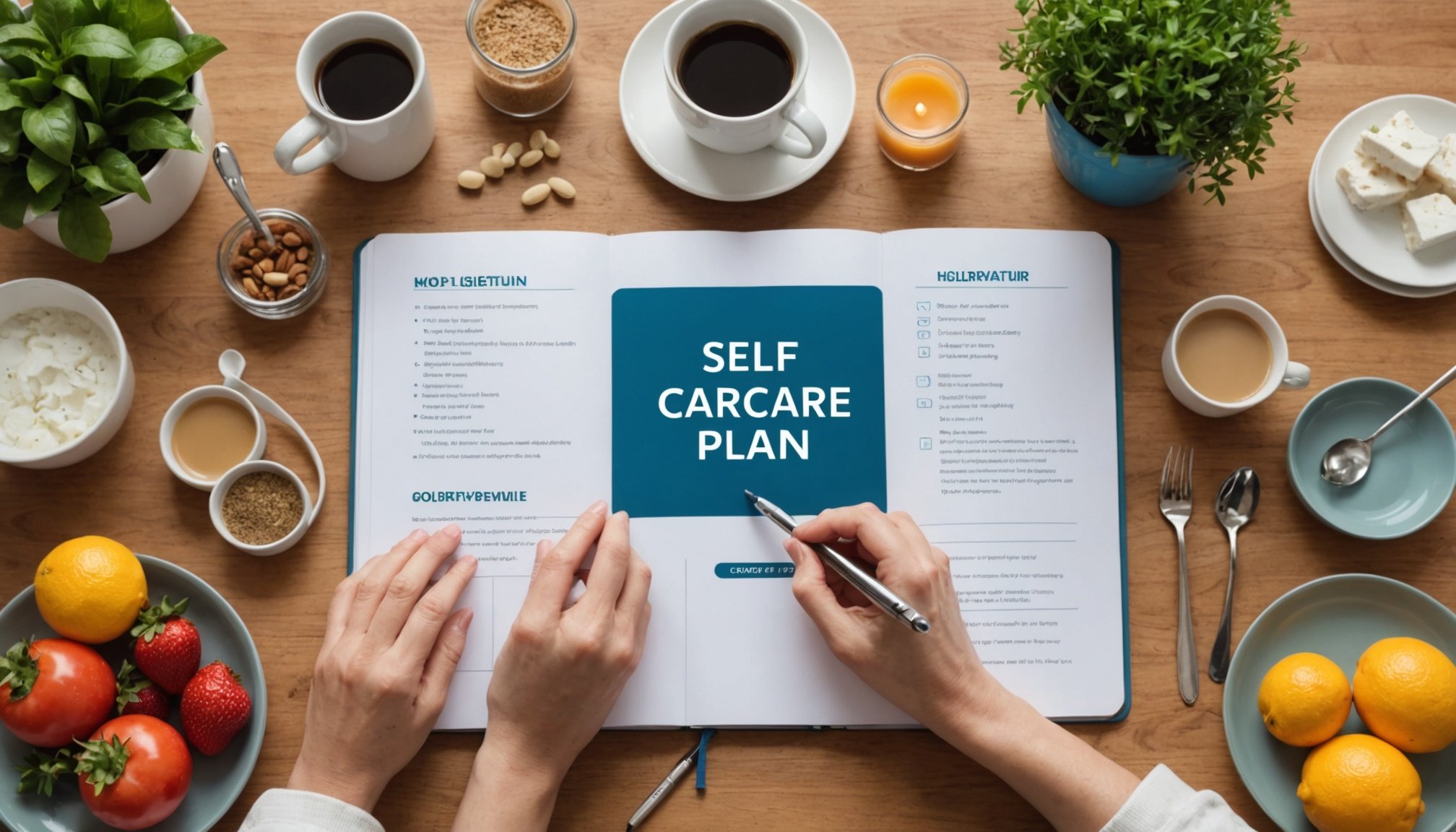In today’s fast-paced world, taking time for self-care is not a luxury but a necessity. Crafting a personalized self-care plan can be a transformative journey toward achieving a balanced and fulfilled life. This guide will lead you through the steps to address both your physical and emotional health needs in a strategic and impactful manner. Whether you’re new to self-care or seeking ways to enhance your existing routine, this article provides comprehensive insights to empower your journey.
Understanding the Importance of Self-Care
Before diving into the practicalities of creating a self-care plan, it’s crucial to understand the why behind it. Self-care is not merely about indulging in temporary comforts but rather about nurturing your well-being in a sustained manner.
Also to read : How can you recognize and manage emotional eating patterns to foster a healthier relationship with food?
Self-care practices encompass a wide range of activities that support your mental, emotional, and physical health. By prioritizing self-care, you are essentially investing in yourself, leading to greater resilience against stress, improved productivity, and enhanced quality of life.
Incorporating self-care into your daily routine helps in reducing burnout and promotes better emotional regulation. With the right practices, you can foster a deeper connection with yourself and better understand your needs. Moreover, self-care is a proactive approach to maintaining your health, allowing you to stay ahead of potential challenges. To truly benefit, it is essential to create a plan that resonates with your personal goals and circumstances.
In parallel : What are the key nutritional differences between organic and non-organic produce, and how can they impact your well-being?
Identifying Your Self-Care Needs
The foundation of an effective self-care plan is an honest assessment of your needs. Everyone’s self-care journey is unique, and the activities that work for one person might not suit another. Therefore, the first step is self-reflection.
Begin by taking a moment to consider what aspects of your health need attention. Do you need more physical activity, or is there a lack of emotional support in your life? Are you often overwhelmed by stress, or do you feel disconnected from your goals? These questions will guide you in identifying key areas to focus on.
For an effective plan, balance is crucial. Both your physical and emotional health should be considered. Perhaps you need to integrate more physical activities like walking or yoga into your routine, alongside practices that nurture your emotional well-being, such as journaling or meditation.
Remember, self-care is not a one-size-fits-all approach. Tailor it to suit your lifestyle and personal preferences. This personalized angle ensures that you’re more likely to stick to your plan and see tangible results over time.
Crafting Your Self-Care Plan
Once you have identified your needs, it’s time to create a structured self-care plan. A well-thought-out plan acts as a road map, guiding you towards achieving a harmonious balance between your physical and emotional health.
Start by setting realistic goals. These should be specific, measurable, achievable, relevant, and time-bound (SMART). For instance, if your goal is to improve your physical health, you might aim to attend a fitness class three times a week.
Incorporate a variety of activities that address different aspects of your well-being. For physical health, consider regular exercises such as jogging or swimming. For emotional health, activities may include practicing mindfulness or spending time with loved ones.
Allocate dedicated time for self-care in your schedule. Whether it’s a daily 30-minute walk or a weekly hobby class, consistency is key to forming positive habits. Make sure you have a mix of daily, weekly, and monthly practices to keep your routine engaging.
It’s also beneficial to have a support system in place. Share your self-care goals with trusted friends or family who can offer encouragement and hold you accountable. Remember, the plan should evolve as your needs change over time.
Overcoming Challenges to Maintain Your Plan
Implementing a self-care plan comes with its own set of challenges. Life’s demands can often derail your best intentions. However, anticipating these hurdles can help you stay committed to your self-care journey.
One common obstacle is time management. With busy schedules, finding time for self-care can seem daunting. The key is to prioritize and schedule self-care as you would any other important appointment. Even short, consistent practices can make a significant difference.
Another challenge is maintaining motivation. It’s normal for enthusiasm to wane over time. Combat this by regularly revisiting your goals and the reasons behind them. Celebrate small victories and remind yourself of the positive impact self-care has on your overall well-being.
Additionally, be prepared for unexpected interruptions. Life can be unpredictable, so it’s essential to remain flexible. Adapt your plan as needed and remember that self-care is not about perfection but about making consistent efforts.
Lastly, address any feelings of guilt that may arise from prioritizing self-care. Understand that taking care of yourself enables you to be more present and effective in other areas of your life.
Creating a personalized self-care plan is a proactive approach to ensuring that both your physical and emotional health needs are met. By understanding the importance of self-care, identifying your unique needs, crafting a detailed plan, and addressing potential challenges, you empower yourself to lead a healthier, more balanced life.
As you embark on this journey, remember that self-care is a lifelong commitment. It’s a dynamic process that requires continuous evaluation and adjustment. Be patient with yourselves and allow your plan to evolve with you. The path to wellness is personal, and by making self-care a priority, you are investing in a brighter, more fulfilling future.











